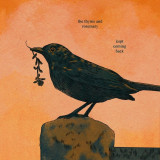Drank or Drunk??
-
Everlasting
3 years ago, updated 3 years agoI have drunk so much liquid today
though I thought that I drank not that much
but regardless I asked my dear husband to check
whether I was sober or drunk
even though what I drank wasn't wine
just plain water and such
So when do you use Drunk or Drank?
I came across a sentence that said:
I have never drunk camel's milk before.
I thought the correct way of saying it would have been: I have never drank camel's milk before. -
Star
3 years ago, updated 3 years agoWhat I know is that drank is past tense and drunk past participle which is used in the tenses past/present perfect or sometimes as adjective depending on the word I think
Since in the sentence it’s used with have, doesnt that make it a present perfect? Thats why it’s drunk I guess.
I’m not an expert in grammar lol, so I’m not sure if what I said is right -
Keira Pickard replied to Everlasting
3 years ago, updated 3 years agoYou'll have to ask Dad on this one!!
I honestly can't work it out. ' Drank' is past tense, so that can only be used in the past. If you say "I'm drunk", then that's present tense . . .but it also can be used as in "I was drunk." It's one of those words which can be placed in either tense as long as it fits into the context - not that that's very helpful.I think it's one of those situations where, if you don't know it, guess. Just go with whatever sounds correct in your head, and I don't think people can point out mistakes that way. Sorry, this isn't the most technical advice! -
Everlasting replied to Star
3 years agoYeah, I read something like that but it doesn’t make much sense because I can write a sentence like:
I have eaten in a restaurant
I have gone to the doctor
I have studied in a library
eaten, gone, studied are written in past tense, right?
So isn’t drank in past tense? -
Everlasting replied to Keira Pickard
3 years agoThank you Keira.
If i say “I’m drunk” then the verb is “to be”?
drunk would be an adjective, right?
If I say “I am a drunk” then drunk would be a noun in this case? -
Star replied to Everlasting
3 years agoEaten and gone are past participle, ate and went are the past tense.
Studied is a past tense, but also the past participle.
Present, past, past participle:
Eat, ate, eaten
Go, went, gone
study, studied, studied
Drink, drank, drunk
Swim, swam, swum
In your sentences, I think the correct way is to say I have drunk. Your sentences are the present perfect tense.
I will stop here, I dont want to give you wrong information. This is what I know, I hope I got it right lol -
-
Keira Pickard replied to Everlasting
3 years agoI know you're definitely right on the latter example (I think!) but I'm as confused as you are on the former. It's frustrating, because I've been doing tenses a lot in school work recently. Surficed to say, I'm not wholly adequate! but I think that drunk in the first one . . . Might be a verb? Because you are 'BEING' drunk? It's an action,I think. I just realized how many 'i think' s I've written!
-
Star replied to Keira Pickard
3 years ago, updated 3 years agoIt is an adjective, like when you say
” I’m happy”, dont make it complicated just try using another adjective instead :)
Also as I said before some past participle verbs can be used as adjectives and nouns, like annoyed is a verb but can be used as an adjective too. -
Sunshine
3 years ago, updated 3 years agoIn verb form:
Drink = present tense (regular habit)
_I always drink milk at night.
Drank = past of an action done at a ***specified time***
_I drank coffee last night, it took my sleep away.
Drunk = present perfect which is formed by using have + past participle.
The tense is used to refer to an action done or never done at an ***unspecified time***
_ I've never drunk Dr Pepper.
In adjective form:
*If someone is intoxicated we use verb to be form:
She is drunk.
My sister was drunk last night.
*When describing the process of getting drunk, it's used with the verb get
- My cousins are always getting drunk on the weekends.. etc
So, in the 1st example:
I have never drank camel's milk before (should be drunk because it's have + past participle + unspecified time) -
BOB GALLO replied to Sunshine
3 years ago, updated 3 years agoSeems alright everything you said Rania, only small correction.
About present perfect tense you said:"The tense is used to refer to an action done or never done at an ***unspecified time***"
It is not really "unspecified time" .. All together the present perfect tense refers to present, that mean something happened and the affect is continued till now. like your sentence: "I've never drunk Dr Pepper." It means you still haven’t drunk it yet. And the action is still ongoing. And if that 'not drinking' happened in sometimes in past and you 'did' finally drink Dr. Pepper, you use "had" instead of have: I had not drunk Doctor Pepper till, yesterday, today, now... no farther.
And this would be past perfect tense.
Some other sentences to prove that the present and past perfect tense actually refer to some specific periods of time::
I haven't drunk Dr. Pepper since yesterday
I hadn't drunk .... till now
I had had drinking problem in past
I have had drinking problem for awhile.
My two scents.
And Luce even though not a verb and only an adjective, I like to add "drunken" ~which I would love to be a one now,~ to the mix -
Sunshine replied to BOB GALLO
3 years ago, updated 3 years agohmmm I am not sure if I said something different than what I initially wanted to say when trying to simplify the rule. But here's another definition below, which is similar to how most English language sources define the tense. At least it's what I learned as a non-native. Let me know if I'm wrong though.
Copied:
"We use the Present Perfect to say that an action happened at an unspecified time before now. The Present Perfect cannot be used with time expressions that indicate a specific time; yesterday, a year ago, when I was younger etc."
"We use the present perfect to say that an action happened at an unspecified time before now. The exact time is not important. You CANNOT use the present perfect with specific time expressions."
"The present perfect is used to indicate a link between the present and the past. The time of the action is before now but not specified, and we are often more interested in the result than in the action itself."
"A repeated action in an unspecified period between the past and now."
etc..
If you looked other dictionaries up or if I misunderstood your post I'll check later for reference. -
ddavidd replied to Sunshine
3 years ago, updated 3 years agoYour literature:
"We use the Present Perfect to say that an action happened at an unspecified time before now. The Present Perfect cannot be used with time expressions that indicate a specific time; yesterday, a year ago, when I was younger etc."
Unspecified time?? I disagree. Here few examples again: I haven’t had coffee since ten after ten.
More specific than this? And we agree the tens is present perfect, don’t we? More:
My father has been in hospital whole summer.
Your literature:
"We use the present perfect to say that an action happened at an unspecified time before now. The exact time is not important. You CANNOT use the present perfect with specific time expressions."
There are ambiguity here: “an action happened at an unspecified time before now” then after says: “exact time is not important” and contradict it right away: “You CANNOT use the present perfect with specific time expressions." Which by examples above and my initial post I proved it is not the case. Even, before the last sentence which bans the use of "specific time expressions." firmly with the capital letter: “You CANNOT” says or implies that it is possible, but it is not important. Which is acceptable.
So why this contradiction in the literature?
Later again the literature uses the terms very loosely: “The time of the action is before now but not specified” But instead it should have said:: The time of the action is before now, often not specified, but IT could be specified if you want too.
English is my second Language, and I am not expert in grammar. I studied it a little around 28 years ago. So someone help here if I am wrong, but I do not think this literature warping around the concepts neatly and often it is contradictory, ambiguous and vague. But I understand what is trying to say. And it is basically vining around the right notion loosely with a proximity of almost, 50% acurecy.
This happens often in grammar, or philosophy. Writers Have problem to wrap their minds around very universal notions, specifically.
Also this was regarding the small fraction of what you quoted the rest was spot on.
Thanks Rania. I enjoyed our conversation. -
Sunshine replied to ddavidd
3 years agoI am not sure about the examples you provided, they do have mixed tenses, but as I said, this is just how English Grammar books define the tense, so I am not in a position to agree or disagree with grammar rules to be honest. I only copied a couple of definitions from those resources to clarify what I initially said in my own words to avoid any misunderstanding.
But as you said, I also enjoyed reading your point of view. Grammar is tricky and it takes a professional to pin point such tiny details. Thank you David -
ddavidd replied to Sunshine
3 years ago, updated 3 years agoEven though those boxes somehow are necessary, sometimes are too much, and I know, believe me I know, thinking out of them is very hard.
Also these boxes sometimes unnecessary, they become part of our norm, and leaving them creates anxiety for those around who still think they are depended on them as norm. Like in cliffhanging, it takes a lot for the practitioner to relay on the rope instead of the cliff itself, while landing.
About the mix tens in my examples, I wish you addressed them for me to understand.
In the end I might be mistaking, if so nothing to be ashamed of, if not, it is nothing to be arrogant about . Philosophy gives you better tool to deal with concepts than those of a grammar teacher.
Whit love
ddavidd -
Sunshine replied to ddavidd
3 years agoYou are right, and because I thought thinking out of them, those boxes, might be hard, I told myself maybe better not to address the exmaples you provided since as I said, this is not my own definition of the tense. This is its definition. I only shared.
All my love -
The Parrott King Jordan R. Stephens
3 years ago, updated 3 years agoI had a response but second guessed myself.
Hello! Haha -
Everlasting replied to The Parrott King Jordan R. Stephens
3 years agoJordan, Hello!
Everyone, thank you for your replies. I think it makes some sense. I guess I just connected the word “drunk” to someone who drinks too much alcohol, and that’s why I find it odd to see it as a verb.
-
ddavidd replied to Everlasting
3 years agoI also enjoyed my little conversation with Rania since she was so gracious about a small fracture of her insightful post which I argued about. Sepcialy finishing with the phrase " All my love" which was sweet and heart warming. Also shows the strength of caracter.
Jorden don't hold back making mistake is part of the process of learning.
Luce if you open threads like this I participate. -
Sunshine replied to ddavidd
3 years agoLol everyone should be gracious, although I admit I didn't feel the same. My primar idea is that what you call fracture is more like a grammar rule that I didn't invent and only shared. Upon your will, I tried to explain it but obviously failed to deliver and simply gave up, because it does need an extensive grammar lesson rather than thinking unconventionally and that's not what Everlasting wanted, I guess, so I didn't wish to ruin her post. After all we can all do our research elsewhere. Grammar is a huge part of language and every verb and every tense is used for its own purpose..which is why I told you earlier that you used different tenses in your examples, serving different causes. If we wanted to go deeper we would have to go for a zoom meeting lol which isn't a bad idea.
Those posts are always fun and I'd love to join too if going into details won't ruin the purpose of the 1st post in the future!
As for fractures, they are there everyday ^_^ -
BOB GALLO replied to Sunshine
3 years ago, updated 3 years agoI always am interested to learn. Specially when we aren't nitpicking about the subject of the thread. Which first we did not violate, secondly it would be dead longtime ago, like everything else around the forums, if we did not participate.
-
Sunshine
3 years ago, updated 3 years agoSure, rather than going for the copy/paste tool from my references, I will leave below the page on this tense by the Cambridge litr, it won't take much time reading, but let me know if it makes sense after reading the whole idea with more examples. As I said earlier, in the 1st example, we used the tense to refer to something that happened at an unspecified time, ofcourse in a way or anther it is time, since it is a tense but we won't use exact time references with have never ...
Check this page, you can either read all or search for "experience" or " we do not give a specific time"
If you prefer an interactive form, here's a video by Benchmark OET, a simplified version explaining that when using the perfect form we should not refer to a specific time like "yesterday" rather we will have to use the simple past tense when serving that purpose.
https://www.youtube.com/watch?v=WV6RYSuAayo
you can either watch all or skip to 3:20
If this doesn't work for you, I give up lol, as honestly I don't have the needed self esteem to argue with Oxford and Cambridge..maybe later as I age. -
D.
3 years ago, updated 3 years agoAfter work I’d love to drink a beer! I drank a few ciders last week, but I’ve not drunk beer in ages!
Please don’t think I’m a drunkard, my drunken tendencies have not manifested themselves for a while now ;)
—
‘ Drunk’ as a noun, I imagine comes from ‘drunkard’ (which is a little archaic now). Drunk’ as an adjective would have come from the Old English word ‘drunken’.
It then evolved, presumably, into phrases like ‘drunk as a lord’. It’s funny because many brits totally omit ‘drunk’ as a verb. Many would incorrectly use ‘drank’ with all past/perfect tenses. I imagine because ‘drunk’ is predominantly associated with alcohol. Either that or our grammar is terrible :P
-
Language is cool and malleable. Fluency isn’t always dependent on grammatical accuracy.







